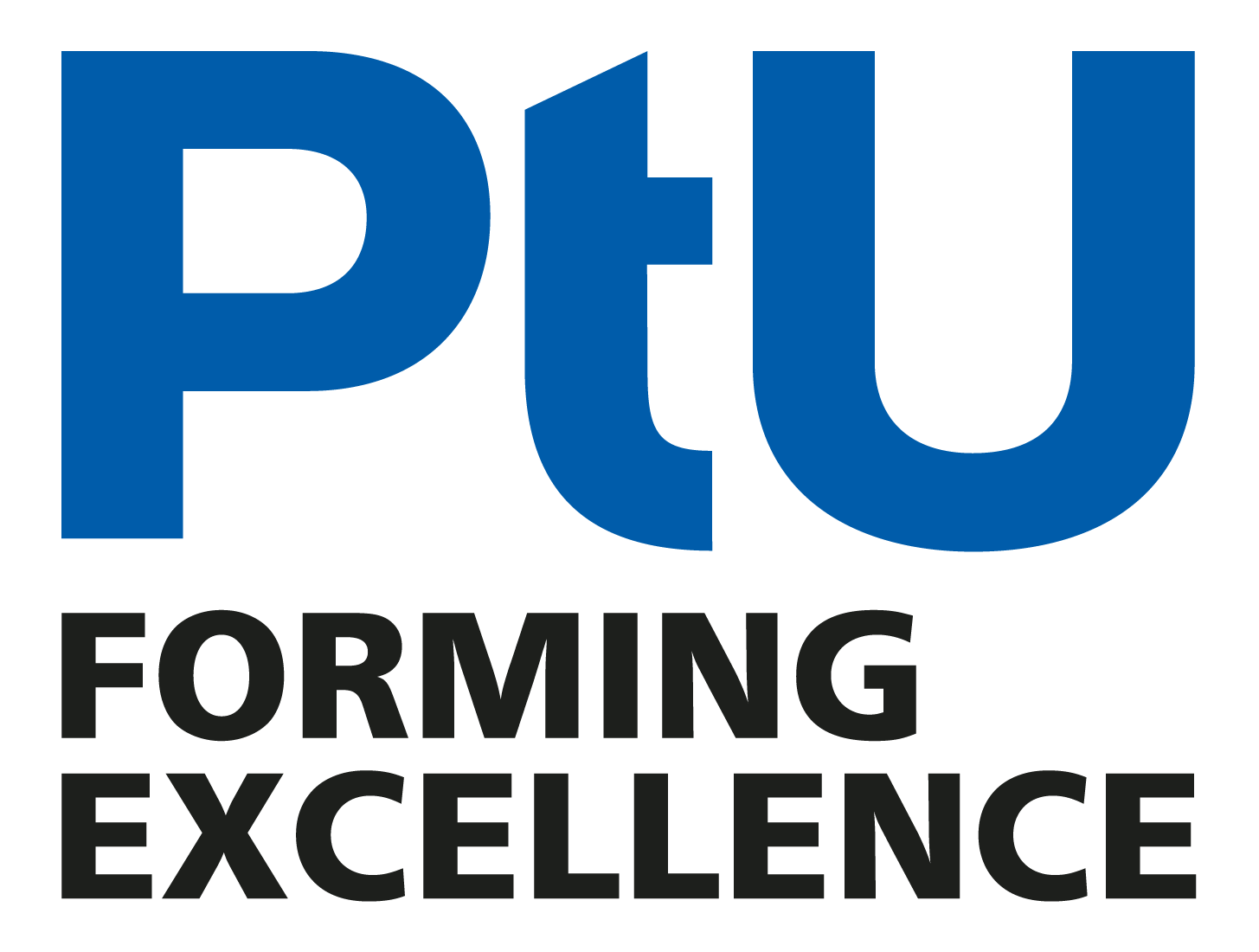The institute’s history
In 1976, metal forming evolved from the Institute for Machine Tools. Prof. Dr.-Ing. Dieter Schmoeckel became head of the newly founded Institute for Metal Forming (IfU). Since 1989 the institute bears today’s name Institute for Production Engineering and Forming Machines (PtU) and is led by Professor Dr.-Ing. Dipl.-Wirtsch.-Ing. Peter Groche since 1999.
The test area on campus Lichtwiese is equipped with numerous test facilities and machine tools. By employing a mechanical workshop with skilled workers and trainees, forming tools and test rigs can be manufactured locally. In 2007 a second experimental hall, built for the Collaborative Research Centre CRC 666, opened for more experimenting capacities. Modern computer hardware enables the efficient use of state-of-the-art simulation and design software and the latest measurement technologies in research. The equipment is completed by student multimedia workstations as well as a training kit to perform hands-on exercises in the tutorial “Control of Forming Machines”. To teach the basics of evaluating process states in a real production environment, the tutorial “Machine Learning in Forming Technology” uses a methodical machine learning approach and works out how to deal with large amounts of data.
Organisation
The Institute for Production Engineering and Forming Machines, led by Professor Dr. Ing. Dipl. Wirtsch. Ing. Peter Groche, is organised in four research departments:
- Process Chains and Forming Units
- Profile Manufacturing Technology
- Tribology
- Functional and Composite Structures
»Process Chains and Forming Units« mainly addresses the examination of entire production processes and the increase of their productivity and stability. Technological subjects are in particular roll forming, tube hydroforming and the development of servo-driven presses.
»Profile Manufacturing Technology« deals with the redevelopment and enhancement of forming processes to achieve both technological and economical advantages. Current projects deal with flexibilization, intelligent roll forming processes and assistance systems, and continuous flow splitting processes.
»Tribology« dedicates itself to the characterization and improvement of tribological interactions within system boundaries of tool materials, semi-finished parts and process materials. The institute provides applicable test stands for bulk and sheet metal forming, hydroforming, and cutting.
»Functional and Composite Structures«
Current research focuses on a more efficient and sustainable use of available resources. Key issues of the department Functional and Composite Structures are the manufacturing and the scientific basis of forming functional materials. Furthermore, joining by forming is an objective of this department. The research activities cover the broad field from fundamental research on the joint formation and the characteristics of forming functional materials to the manufacturing of complex components with integrated sensors and actuators.


